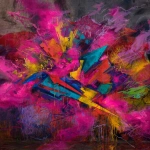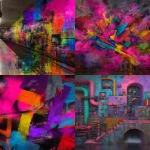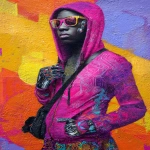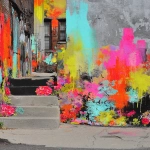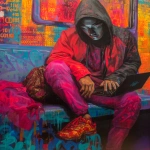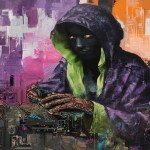Explore the Best AI Image Gallery

Blockchains Ripple Effect: Reshaping the Financial Landscape for Creative Industries
The intersection of finance and creativity has always been a dynamic space. But with the emergence of blockchain technology, this landscape is undergoing a profound transformation. Blockchain, the decentralized and immutable ledger system, promises to revolutionize how creative industries operate, offering new avenues for funding, ownership, and distribution of artistic works.
Unlocking Financial Opportunities for Creators
For artists, musicians, writers, and designers, traditional financial models often present significant challenges. Securing funding can be a hurdle, while platforms take large cuts from sales. Blockchain offers a solution by enabling direct interactions between creators and their audience.
NFTs: Owning the Digital Age
Non-fungible tokens (NFTs) have emerged as a game-changer in this space. These unique digital assets represent ownership of specific creative works, be it artwork, music, or even virtual experiences. NFTs empower creators to sell their work directly to collectors, bypassing intermediaries and retaining a larger share of the profits.
Decentralized Platforms: Empowering Community
Blockchain-based platforms are also fostering decentralized ecosystems where creators can connect with each other and their audiences directly. These platforms often utilize smart contracts, self-executing agreements coded on the blockchain, to streamline transactions, ensure transparency, and reduce reliance on centralized authorities.
Beyond Finance: Transforming Creative Industries
The impact of blockchain extends beyond financial transactions. It has the potential to revolutionize various aspects of creative industries:
Copyright Protection: Securing Creative Rights
Blockchain provides a tamper-proof record of ownership and provenance for creative works. This can help combat copyright infringement by clearly establishing authorship and tracing the history of a piece.
Supply Chain Transparency: From Creation to Consumption
Tracking the journey of a creative product from its inception to its final destination becomes transparent and auditable on blockchain. This can benefit consumers who seek ethically sourced and sustainably produced goods.
Ethical Considerations: Navigating New Terrain
While blockchain offers immense potential, its crucial to address the ethical considerations that arise:
Data Privacy and Security
Blockchains immutability can raise concerns about data privacy. Its essential to ensure that personal information is handled responsibly and securely.
Accessibility and Inclusivity
The benefits of blockchain technology should be accessible to all creators, regardless of their technical expertise or financial resources. Addressing the digital divide is crucial for equitable participation in this evolving landscape.
Future Trends: Shaping the Creative Economy
The future of blockchain in creative industries is brimming with possibilities:
Metaverse Integration
Blockchain will play a key role in the metaverse, enabling creators to monetize virtual experiences, own digital assets, and interact with audiences in immersive ways.
\nAI-Powered Creativity
The convergence of blockchain and artificial intelligence (AI) will unlock new forms of creative expression. AI algorithms can assist artists in generating ideas, composing music, or designing artwork, while blockchain can ensure fair compensation for creators who leverage AI tools.
Conclusion
Blockchain technology is poised to revolutionize the financial landscape for creative industries, empowering artists, fostering transparency, and unlocking new avenues for growth. By embracing its potential while navigating ethical considerations responsibly, we can shape a future where creativity thrives in a decentralized and inclusive digital economy.


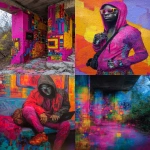
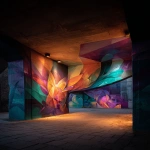


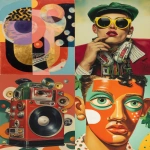
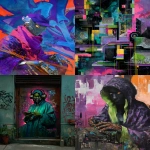

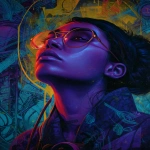
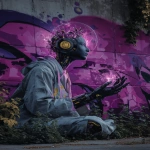
](https://images.ai-img.art/thumbnails/150/664a559b73eaff070d6f7fc7b3b151718aef9fa3a3f12f90b3c9092ceaa3cb56.webp)

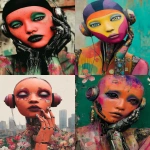

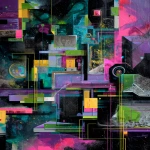
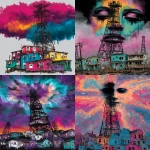

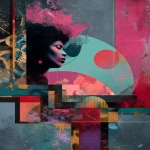

](https://images.ai-img.art/thumbnails/150/33d5e6d1da2b8ec2c4b8eab20d051c27c26d7a4991a77faf06fd03e96617fb1e.webp)
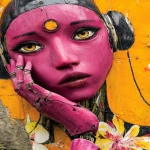



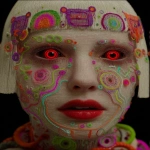

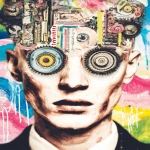
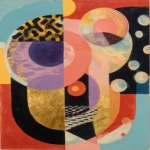

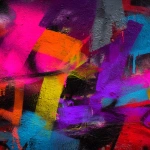
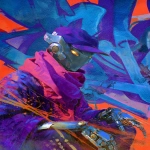
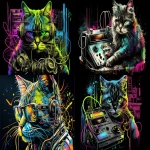
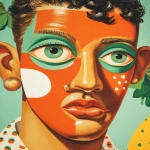
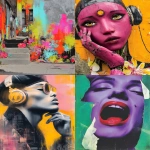

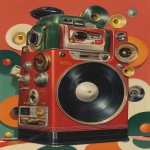

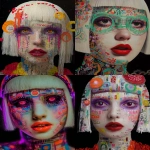
](https://images.ai-img.art/thumbnails/150/1aa8215ea9a4f6970e81a10bdb4feb3b08d5e1a202c3c7ed2c9380f2f63d5a74.webp)

